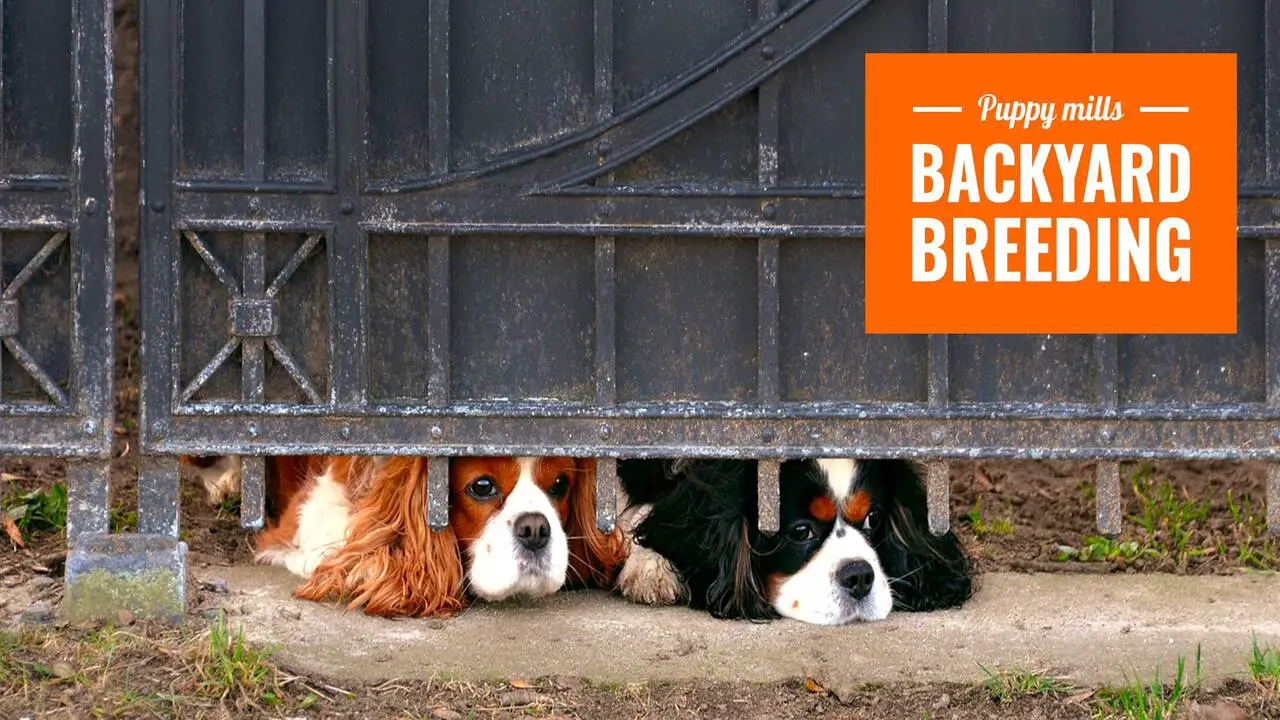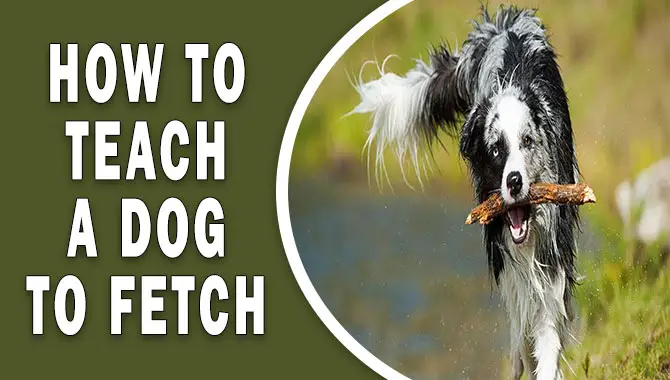As dog owners, we often hear the term “BYB” thrown around in discussions about responsible breeding practices. But what exactly does BYB mean for dogs? BYB stands for “backyard breeder,” a term used to describe an individual who breeds dogs without proper education, experience, or regard for health and welfare standards.
These breeders may prioritize profit over the well-being of their dogs and puppies, leading to many issues for the animals and their future owners. Here, we’ll explore what does byb mean for dogs and the welfare of dogs. We’ll discuss the signs of backyard breeders, the risks of buying from them, and how to avoid supporting their unethical practices.
We’ll also delve into the differences between responsible breeders and BYBs, highlighting the importance of choosing a reputable breeder who prioritizes the health and happiness of their dogs.

What Is A Backyard Breeder (BYB)?

A Backyard Breeder, commonly referred to as a BYB, is an individual who breeds dogs without the proper knowledge, experience, or ethical considerations. Unlike reputable breeders who prioritize the health and well-being of the dogs they breed, BYBs often focus solely on making a profit.
They may not conduct proper health screenings for their breeding dogs or provide adequate socialization and care for the puppies. This can lead to a higher risk of genetic health issues and behavioural problems in the offspring.
How BYB Works
BYBs operate by breeding dogs without considering the breed standard or health clearances. Often resulting in compromised genetic traits and potential health issues. These backyard breeders may use unregistered or poorly bred dogs for breeding purposes. Lacking the proper knowledge or resources to ensure the overall well-being of the puppies.
Advertisements for their puppies can be found in pet stores or online marketplaces. However, the puppies produced by BYBs may not receive proper socialization or veterinary care. This negligence can lead to long-term behavioral and health problems.
What Does BYB Mean For Dogs Details Explanation

Here details explanation of what does BYB mean for dogs. BYB, short for Backyard Breeder, refers to individuals who breed dogs without proper knowledge or expertise. These breeders prioritize profit over the health and well-being of the dogs they produce. As a result, their breeding practices often lead to genetic health issues and contribute to pet overpopulation.
Dogs produced by BYB dog may suffer from behavioral issues or other temperament problems due to the lack of careful breeding and socialization. These breeders do not prioritize the dogs’ health and welfare, often leading to long-term consequences for the animals involved.
To ensure the ethical treatment of dogs and support responsible breeding practices, it is crucial to avoid buying from BYBs. Instead, it is recommended to find reputable and responsible breeders who prioritize their dogs’ health, temperament, and overall well-being. These breeders often go through extensive measures such as health testing, breed standard adherence, and proper socialization to ensure the production of healthy and well-adjusted puppies.
Understanding The Acronym BYB
The acronym BYB stands for Backyard Breeder. These are individuals who breed dogs without adequate knowledge or expertise. Instead of prioritizing the well-being of the dogs, their breeding practices often focus on making a profit.
Unfortunately, this approach can contribute to several issues within the dog breeding community. One of the primary concerns is pet overpopulation. Backyard breeders do not typically practice responsible breeding techniques like spaying/neutering their dogs. This can lead to more puppies being born and subsequently needing homes.
The Meaning Of BYB In The Context Of Dogs
In the context of dogs, BYB stands for Backyard Breeder. These individuals breed dogs without proper knowledge or expertise, often prioritizing profit over the health and well-being of the animals. The practices of BYBs contribute to issues such as pet overpopulation and genetic health problems within the dog breeding community. It is crucial to understand the negative implications of BYB and support responsible breeders who prioritize the welfare of the dogs.
By understanding the meaning of BYB, we can recognize the importance of supporting ethical dog breeders. Unlike BYBs, responsible breeders deeply understand genetics, health issues, and behavioral traits, resulting in greater assurance of obtaining a healthy and well-adjusted pup. Responsible breeders also prioritize providing adequate veterinary care, socialization, and proper nutrition to their dogs.
On the other hand, BYBs may lack the necessary knowledge and resources to meet these standards. Dogs produced by BYBs may suffer from genetic health issues due to uncontrolled breeding practices. These backyard breeders often do not conduct proper health testing or obtain registration papers for their litter. The consequences of these unethical practices can be seen through the increased incidence of inherited diseases and temperament problems among certain breeds.
The Negative Implications Of BYB In The Dog Breeding Community
Supporting responsible breeders who prioritize the health and welfare of dogs is crucial to prevent the negative implications of Backyard Breeders (BYBs) in the dog breeding community. BYBs undermine the efforts of ethical breeders by prioritizing profit over the well-being of the animals. This can have harmful consequences for the entire dog population.
One of the major issues caused by BYBs is the overpopulation of pets, unlike responsible breeders who carefully plan their litters and ensure that each puppy finds a loving home. BYBs often produce more dogs than qualified homes. As a result, many dogs end up in shelters or abandoned on the streets, leading to overcrowding and increased euthanasia rates.
In addition to overpopulation, BYBs contribute to the prevalence of genetic health issues in dogs. Without proper knowledge and expertise, these breeders may not perform necessary health screenings or consider the potential for inherited diseases. As a result, puppies produced by BYBs are more likely to inherit genetic conditions that can be passed down through generations. Causing unnecessary suffering and expensive vet bills for owners.
Backyard Breeders Vs. Responsible Breeders

Backyard and responsible breeders have distinct approaches when it comes to breeding dogs. While backyard breeders prioritize profit above the health and well-being of the dogs. Responsible breeders prioritize the welfare of their animals.
Responsible breeders follow ethical breeding practices and adhere to health testing protocols to ensure the production of healthy and genetically sound puppies. They also prioritize the breed standard and work diligently towards improving the breed.
On the other hand, backyard breeders often lack the knowledge and resources to ensure the overall well-being of the puppies they produce. Their focus is primarily on making money rather than on the welfare of the dogs. This can lead to various problems, such as genetic health, temperament, and behavioural issues in the puppies they sell.
Health And Genetic Issues Associated With Bybs
Dogs bred by backyard breeders (BYBs) are more susceptible to genetic health problems due to the absence of proper health testing. BYBs often neglect the selection of healthy breeding stock, resulting in the transmission of genetic disorders to their offspring. These dogs may also suffer from poor socialization and behavioural issues.
Unlike responsible breeders who prioritize the overall well-being of their dogs. BYBs prioritize profit over the health and welfare of their animals. The lack of knowledge and resources among backyard breeders leads to the propagation of unhealthy puppies. This perpetuates a cycle of poor breeding practices and contributes to pet overpopulation.
Supporting ethical breeders is crucial in preventing the negative implications of BYBs. Responsible breeders follow ethical breeding practices, conduct health testing, and work towards improving the breed standard. By supporting them, we can promote the production of healthy and well-adjusted dogs.
The Importance Of Supporting Ethical Dog Breeders
Supporting ethical dog breeders is crucial for promoting dogs’ overall health and well-being. These breeders prioritize the welfare of the dogs and adhere to proper breeding practices. They conduct thorough health testing to ensure their breeding stock’s quality and genetic soundness. By working towards improving the breed, they contribute to the betterment of dog breeds.
Buying a puppy from an ethical breeder significantly reduces the risk of genetic health issues prevalent in dogs bred by backyard breeders (BYBs). Ethical breeders carefully select their breeding pairs based on health, temperament, and conforming to breed standards. This attention to detail helps ensure that the puppies born from these breedings have a lower chance of inheriting genetic disorders.
Supporting ethical breeders also means supporting responsible dog breeding practices. Unlike BYBs, who prioritize profit over the well-being of the dogs, ethical breeders invest time, effort, and resources into raising healthy and well-socialized puppies. They provide proper veterinary care, nutrition, and early socialization, setting their puppies up for a lifetime of good health and balanced behaviour.
How To Identify And Avoid Buying From A BYB
BYB stands for “backyard breeder,” which refers to individuals who breed dogs without proper knowledge. Experience regard for the health and well-being of the animals. It is important to identify and avoid buying from a BYB when looking for a new dog, as supporting their practices can perpetuate unethical breeding and potential health issues in the future. Here are some tips on how to identify and avoid buying from a BYB:
- Do your research: Before purchasing a dog, research different breeds, reputable breeders, and responsible breeding practices. This will help you make an informed decision and avoid falling victim to backyard breeders.
- Visit the breeder’s premises: A reputable breeder typically allows potential buyers to visit their premises and meet the puppy’s parents. This allows you to assess the dogs’ living conditions and ensure that they are being properly cared for.
- Ask questions: Don’t be afraid to ask the breeder questions about their breeding practices, health testing, and socialization efforts. A responsible breeder will be transparent and provide all the necessary information.
- Health guarantees: Reputable breeders often provide health guarantees and are willing to take back a dog if genetic or health issues arise. This shows that they genuinely care about the well-being of their puppies.
- Avoid online marketplaces or pet stores: Backyard breeders often advertise their puppies online or sell them through pet stores. These sources are more likely to be associated with unethical breeding practices.
Remember, buying from a reputable breeder ensures that you are getting a healthy and well-cared-for dog and supports responsible breeding practices in the long run.
Adopting Or Rescuing Dogs As An Alternative To Supporting Bybs
Adopting or rescuing dogs can be a great alternative to supporting backyard breeders (BYBs). When you adopt a dog from a shelter or rescue organization, you actively contribute to reducing the demand for puppies from BYBs. Rescue dogs may not come with fancy registration papers or a specific breed label, but they often become loving and loyal companions regardless of their pedigree.
By giving a rescued dog a second chance at a happy and healthy life, you provide them with a loving home and help combat the pet overpopulation problem. Adoption fees are typically more affordable than purchasing a puppy from a breeder, making it an accessible and cost-effective option for those looking to add a furry friend to their family. Plus, by adopting, you directly contribute to reducing the number of dogs in shelters.
Rescuing a dog is a rewarding experience that comes with its own set of challenges and joys. These dogs may have experienced neglect or abandonment at some point, but their resilience shines through as they quickly adapt to their new homes. Whether looking for a playful pup or a calm companion. Rescues come in all shapes, sizes, and breeds, offering various options to suit different lifestyles and preferences.
The Role Of Education And Awareness In Combating BYB Practices

Educating the public about the dangers and consequences of supporting backyard breeders is crucial in combating BYB practices. By spreading awareness, people can understand the negative implications of purchasing puppies from BYBs and the importance of responsible breeding practices.
Increasing awareness about the benefits of supporting reputable breeders who prioritize the health and well-being of their dogs can help discourage individuals from buying from BYBs.
Promoting responsible pet ownership and emphasizing the importance of spaying/neutering can also significantly combat BYB practices. By encouraging pet owners to have their dogs spayed or neutered, unintentional breeding can be prevented. Ultimately reducing the number of puppies produced by backyard breeders.
Conclusion
Understanding the negative implications of backyard breeders (BYBs) and their impact on the dog breeding community is crucial. BYBs prioritize profit over the health and well-being of the dogs they breed, leading to various health and genetic issues. On the other hand, responsible breeders prioritize the welfare and betterment of the breed.
To ensure you are not unknowingly supporting a BYB, it is important to educate yourself on how to identify and avoid buying from them. Consider adopting or rescuing dogs as an alternative to supporting unethical breeding practices.
By doing so, you are giving a loving home to a dog in need and promoting the ethical treatment of animals. We have provided bulk information on what does byb mean for dogs spray and hope our information was helpful from your perspective.
Frequently Asked Questions
How Do I Know If My Dog Is A BYB?
Identifying if your dog is from a backyard breeder (BYB) involves looking for signs such as poor living conditions, lack of health checks, and frequent breeding. If you obtained your dog from a pet store or online marketplace, it may be from a BYB. Consider getting your dog’s DNA tested to determine its breed and potential health issues.
What Is The Difference Between A Puppy Mill And A Backyard Breeder?
When considering where to get a dog, it’s important to understand the difference between a puppy mill and a backyard breeder. Both prioritize profit over animal welfare, but puppy mills are large-scale operations that prioritize quantity over quality.
What Does BYB Stand For In The Context Of Dogs?
In the context of dogs, BYB stands for Backyard Breeder. Backyard breeders breed dogs without proper knowledge or care for their health and welfare, often prioritizing profit over the well-being of their dogs. It is crucial to avoid buying from BYBs and instead support responsible breeders who prioritize the health and welfare of their dogs.
What Are The Characteristics Of A BYB’s Breeding Practices?
BYBs, or backyard breeders, prioritize profit over the dogs’ health and welfare. They may neglect proper health screenings, genetic testing, vaccinations, and veterinary care for their puppies. Additionally, they may not have a plan to ensure responsible and loving homes for their puppies.
How Can You Identify If A Breeder Is A BYB Or Not?
Signs of a backyard breeder (BYB) include multiple litters available at once and reluctance to show living conditions. Reputable breeders prioritize health testing, puppy socialization, and answering questions. Consider adopting from a shelter instead to avoid supporting questionable breeders.

Aquarium passion is all about connecting with the aquatic life and providing education to the public on the importance of these creatures. We showcase a wide variety of marine life through our exhibits as well as working with schools to provide unique learning opportunities for students of all ages.









